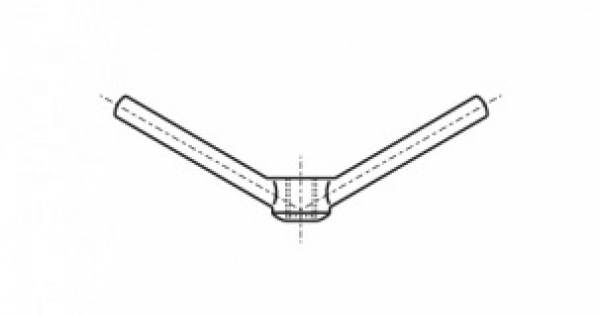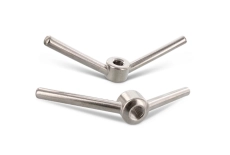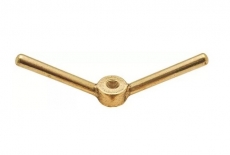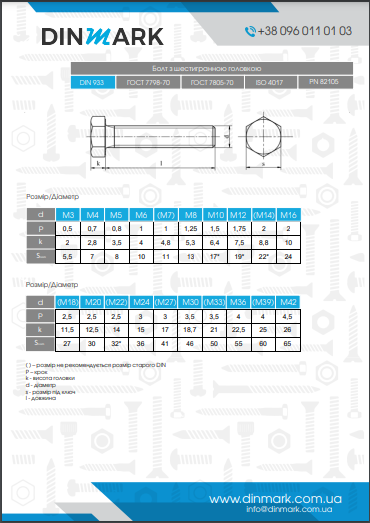
A lever nut is a special type of nut that has a built-in lever for tightening or loosening. It's used in situations where access to the connection is limited or a large amount of force is needed to tighten it.
Construction and Materials
A lever nut consists of a body, a lever, and a threaded part. The body is usually made of steel or stainless steel, while the lever is made of a material that provides high strength and wear resistance.
How it Works
To tighten a lever nut, you need to turn the lever. This causes the threaded part of the nut to move along the thread of the bolt, creating the necessary tightening. To loosen the nut, the lever is turned in the opposite direction.
Advantages of Using Lever Nuts
- Accessibility in tight spaces: Lever nuts allow you to tighten and loosen connections in places where using a regular wrench is difficult.
- High tightening torque: Thanks to the lever, you can achieve a significant tightening force, ensuring a secure connection.
- Fast assembly: Lever nuts allow you to quickly and easily install and remove fasteners.
Applications
Lever nuts are widely used in mechanical engineering, automotive, aviation, and other industries where reliable fastening of connections is required in confined spaces or when a high tightening force is needed.
DIN 80701 Standard
The DIN 80701 standard likely defines the specific technical characteristics of the lever nut, such as dimensions, tolerances, materials, and quality requirements. For more detailed information on this standard, it is recommended to consult the appropriate technical documentation.










